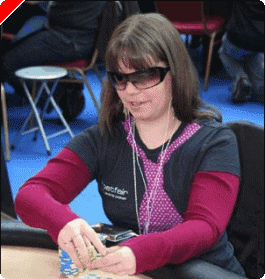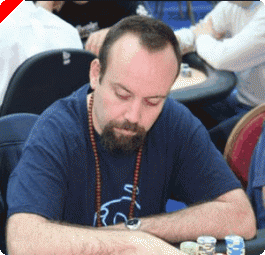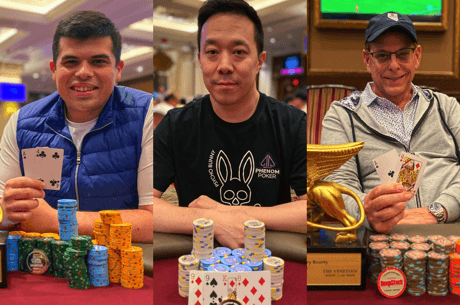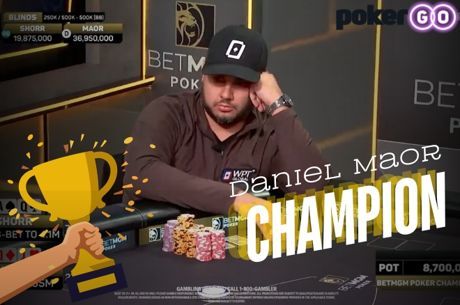Poker in China: PokerStars APPT Macau Set for Debut
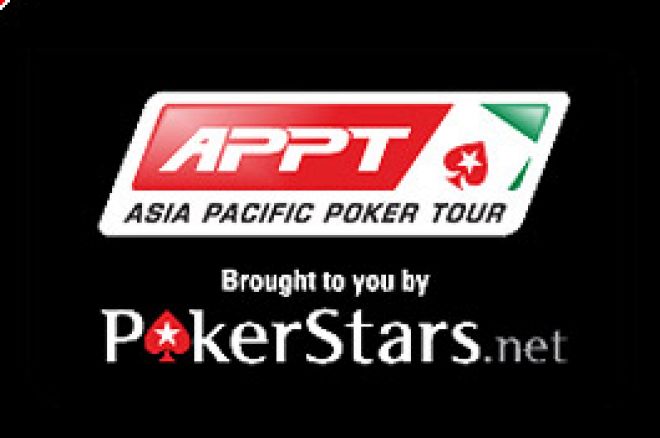
Among the questions that have been asked as poker becomes ever more global is this: "When is the game coming to China?" While the Chinese have a rich gambling tradition, poker itself had barely a toehold in the world's most populous country�� until recently. With the first-ever PokerStars APPT Macau Asian Poker Open looming, here's an inside glimpse at how the first-ever major international poker event came to China. It details both the founding of the Asia Pacific Poker Tour itself and the opportunity to host an event in Macau, the latter of which seemed unlikely not too long ago.
The founders of the APPT, Jeffrey Haas and Sarne Lightman, spent the latter part of 2006 exploring possible venues for their tour. As Lightman recalls it, "We had both been interested in the idea of an Asia or Asia Pacific tour for a little while and decided to meet up in Macau to meet each other and evaluate the local landscape. Over the previous month I had been in Manila, Singapore and Seoul and already seen the great potential in these markets."
Macau was also on Haas and Lightman's list, given its gigantic size as a center for gambling commerce, plus its being the point of entry to the Chinese market. Macau, though, was different than the other markets. Not only was it less susceptible to the influences of Western culture (which would naturally include poker), the table game of choice was baccarat, with most available floor space for table games already devoted to that pursuit. As Lightman noted, "On busy days most of the casinos were three deep at the tables, and with the money pouring in they had little or no interest in the far less profitable table game of poker."
All that began to change when major international gambling corporations took an interest in Macau, and began the slow process of converting Macau from an endpoint for Chinese Mainland "day trippers," who stay for 24-48 hours and gamble incessantly while in the city, to a true "destination," where well-heeled high rollers might choose to congregate for several days at a time. This process has barely begun in Macau, but poker, for its part, is playing a role, and the APPT Macau Asian Poker Open is an important landmark in this sea change.
Lightman cited the opening of the Wynn Macau and announced plans for the Venetian Macao-Resort-Hotel and MGM Grand Macau as something that would "change the Macau gaming landscape forever." Along with other new developments that devoted more space to rooms, eating, shopping and other amenities, a new focus on lifestyle and entertainment would emerge. It was into this new awareness that Lightman and Haas pitched their APPT plans to Chinese authorities only a few weeks back, but armed with evidence that poker could do for these new casino/hotels what baccarat, by and large, could not: attract a high-caliber clientele, and keep them onsite for days at a time.
Haas and Lightman met with the Macau Gaming Commission to evaluate the possibilities of running a poker tournament in Macau. They learned that although the legislative framework existed to apply for a poker license, the only people/organisations that could apply were the existing gaming license holders �C meaning the casinos. Still, most of the older casinos had their floor space already devoted to baccarat and the "day tripper" market, so it was clear that another party would need to enter the mix. It would be up to one of the newer "destination" casinos to recognize poker's commercial viability as a money maker for casinos. Fortunately, that was already in the works as well, and a happy convergence was about to occur.
Haas and Lightman made contact with First Impression, Ltd. and its owner, Elton Tsang. Tsang worked closely with one of Macau's new destination resorts, the Grand Waldo Casino, and had also been exploring the viability of a major poker event in Macau since the spring of 2007. Tsang's interest was more than idle; he even hired prominent tournament director Matt Savage and Savage's partner, Jack Fox, bringing them to Macau in May of 2007. As Savage recalled the trip: "We both traveled to Macau in May and met with Elton and his friends at Grand Waldo Casino and Hotel. I met with the (Macau) gaming commission. We were able to obtain the first license for Texas Hold'em poker in Macau. Jack and I then went looking for a sponsor and had the good fortune to enter an arrangement with Jeffrey Hass of APPT. APPT had a TV solution in place, so they seemed like a perfect sponsor."
The APPT not only had a TV solution; it had provable numbers on its side. It had just come off a successful launch in the Philippines. The main event of APPT Manila drew 255 players from 35 different countries, and there were an estimated 1,100 people attending the casino to play in the main or other events, play in the related cash games, or there in support of relatives and friends. The event sold out not only the entire host Hyatt Hotel venue, but spilled into the next-door Diamond Hotel and consumed an extra 100 room-nights.
The APPT Seoul stop four weeks later drew similar strong numbers, and helped the APPT win the race against World Poker Tour Enterprises to host the first-ever Hold Em tournament in China. While WPTE had already signed with Chinese gaming authorities to conduct major Traktor (Chinese card game) tournaments, the APPT's proven success in Pacific Rim venues certainly bolstered its case, and the APPT, through the Grand Waldo Casino and First Impression, Ltd., was given the go-ahead to run the upcoming Macau event.
Advance numbers certainly indicate that APPT Macau will meet the standards established by the tour's other recent stops, despite the fact that the APPT wil have had only a few weeks to set up and orchestrate the event. As of November 14, after only three weeks of online qualifiers at PokerStars, almost 150 players had qualified for the main event, along with an additional 26 direct buy-ins.
The lineup of Team PokerStars members and other players scheduled to be on hand is every bit as impressive. Among those slated to participate in the $2,500 main event are Barry Greenstein, Joe Hachem, Liz Lieu, Hevad Khan, Isabelle "No Mercy" Mercier, Lee Nelson, Bill Chen, Masa Kagawa, Chad Brown, Emad Tatouh, Tuan Lam, Scotty Nguyen, and 2007 WSOP Main Event champion Jerry Yang. A $15,000 "high rollers" event is also scheduled as part of the festivities, and the Grand Waldo itself is already sold out; overflow locations are already being used.
Will poker take off in China? That's certainly the hope of Lightman and Haas, the APPT's founders --- and if it does, the APPT is well-positioned for the future. Poker seems to be able to fill hotel rooms around the globe, but could it ever supplant or co-exist with baccarat, the longtime Chinese favorite? Will poker create its own audience in China, or will it convert baccarat players to a new game?
In Lightman's words, it's likely to be both. "The dramatic increase in competition for players in Macau due to the opening of all these 'mega' casinos will mean, in the short term at least, the days of three deep at every casino's baccarat tables are probably over.
"Poker as an offering immediately increases a Macau casino's appeal to US / European and Australia / New Zealand players, by bringing in the more family-oriented 'tourist'-style players," continued Lightman. "We expect close to 300 families and friends for our event alone. It is definitely our hope that the travel and exotic destinations offered by all the APPT events will attract this type of Chinese poker tourist as well."
Lightman added, "I also think that poker will also become an attractive option for the Chinese baccarat players as well. Currently most Chinese players don't really know how to play poker and thus gravitate to the baccarat tables where they know the game. Once the players are exposed to poker and the excitement of competing against each other instead of against the house, we are confident the game will catch on as it has in so many other countries across the world.
Perhaps though, the most succinct word on poker in China came from Matt Savage. "People are going to love Hold'em in China, just as they have around the world," Savage said. "Poker will be a huge success and a monster part of the [Chinese] casino gaming scene, within two years."


